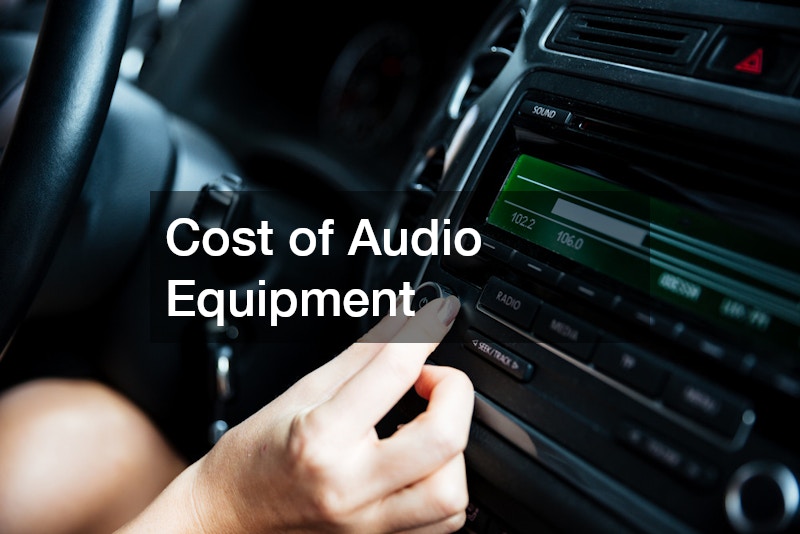In this article, we will explore critical considerations before hiring car audio installers. Whether you’re looking to enhance sound quality or integrate advanced technology into your vehicle’s audio system, understanding the key aspects of hiring the right professionals is essential. We’ll cover frequently asked questions and provide comprehensive insights to help you make informed decisions.
Check Credentials and Experience
Before hiring, verify the installer’s credentials and ensure they have adequate experience with the specific audio systems you wish to install. An experienced installer will be well-versed in handling complex systems and can effectively troubleshoot any potential issues. Checking credentials is also a way to ensure that the installer adheres to industry standards and best practices.
Ask for certifications or any form of professional training that might indicate a higher level of expertise. Installers who have received formal training are more likely to understand the intricate details of audio systems. This knowledge is crucial when it comes to dealing with high-end audio equipment, which may require specialized handling and installation techniques.
Consultation and Customization Options
Engage in a consultation with the installer to discuss customization options that fit your vehicle and audio preferences. Customization is a key advantage of professional installations, allowing you to tailor the audio experience to your specific needs and vehicle architecture. A knowledgeable installer will be able to offer suggestions and modifications based on their expertise and your requirements.
During the consultation, ensure the installer conducts a thorough assessment of your vehicle to identify viable installation strategies. By examining the vehicle’s design, the installer can propose optimal placements for speakers and other components, maximizing sound quality and distribution. Customization may also involve software adjustments to suit your listening preferences.
Installation Fees
Understand the breakdown of installation fees, which may vary based on system complexity and installation time. Complex installations, which involve several components and intricate wiring, understandably incur higher fees. Simpler setups require less time, reducing labor costs associated with the installation.
Always ask for an itemized quote to discern exactly what you are being charged for. This transparency prevents surprise charges and allows you to assess whether the estimated costs align with your budget. Comparing quotes from different installers can also provide a competitive pricing landscape.
Cost of Audio Equipment
Factor in the cost of audio equipment, including speakers, amplifiers, and head units, which can significantly impact your budget. The quality and brand of the equipment will largely influence the total expense of the upgrade. High-end audio components often provide superior sound but come at a higher premium.
When selecting audio equipment, balance is key. The goal is to achieve the best possible sound within your budget constraints. Consulting with your installer can help you identify which components offer the most value for money, ensuring you don’t overspend on unnecessary features.
Additional Expenses and Hidden Costs
Be aware of potential hidden costs, such as wiring, adapters, or additional accessories required for a complete installation. These elements are crucial for effective integration of your new audio system but are not always included in initial estimates. Discussing these with your installer beforehand can help you budget more accurately.
Electrical upgrades may be necessary to support higher power demands of advanced audio systems. Components such as custom mounting brackets or dash kits might be needed to establish proper fits and secure installations. These additional expenses cumulatively add to the overall cost of the upgrade.
Poor Wiring and Connections
Poor wiring can lead to audio issues. Ensure that the installer uses high-quality wires and secure connections for optimal performance. Loose or incorrect connections can lead to sound distortion or system failure.
Attention to detail during the wiring process can prevent ongoing issues. Ask your installer to carefully secure all connections and use proper insulation techniques to avoid short circuits. By minimizing the risks of wiring failures, you ensure a more reliable and sustainable audio experience.
Incorrect Speaker Placement
Improper speaker placement can affect sound quality. Professional installers should have the expertise to achieve the best audio dispersion. Properly positioned speakers ensure that sound waves reach the listener effectively, offering a balanced auditory experience.
The speaker’s orientation and height play crucial roles in sound dissemination. Engaging an experienced installer who understands how to manipulate these variables can significantly improve your car’s auditory environment. Optimal placement involves accounting for the vehicle’s acoustics and spatial limitations.
Neglecting Compatibility Issues
Compatibility issues can arise with existing systems. It’s crucial to ensure all components work seamlessly together. Installing incompatible parts can lead to malfunctioning or a significant drop in sound quality.
Hiring the right car audio installer requires thorough research and consideration of various factors, including credentials, costs, and potential pitfalls. By following the advice outlined in this article, you can enhance your vehicle’s audio experience with confidence and peace of mind. The assurance of a proper installation brings enjoyment and value, transforming your driving experience into a mobile concert hall.





